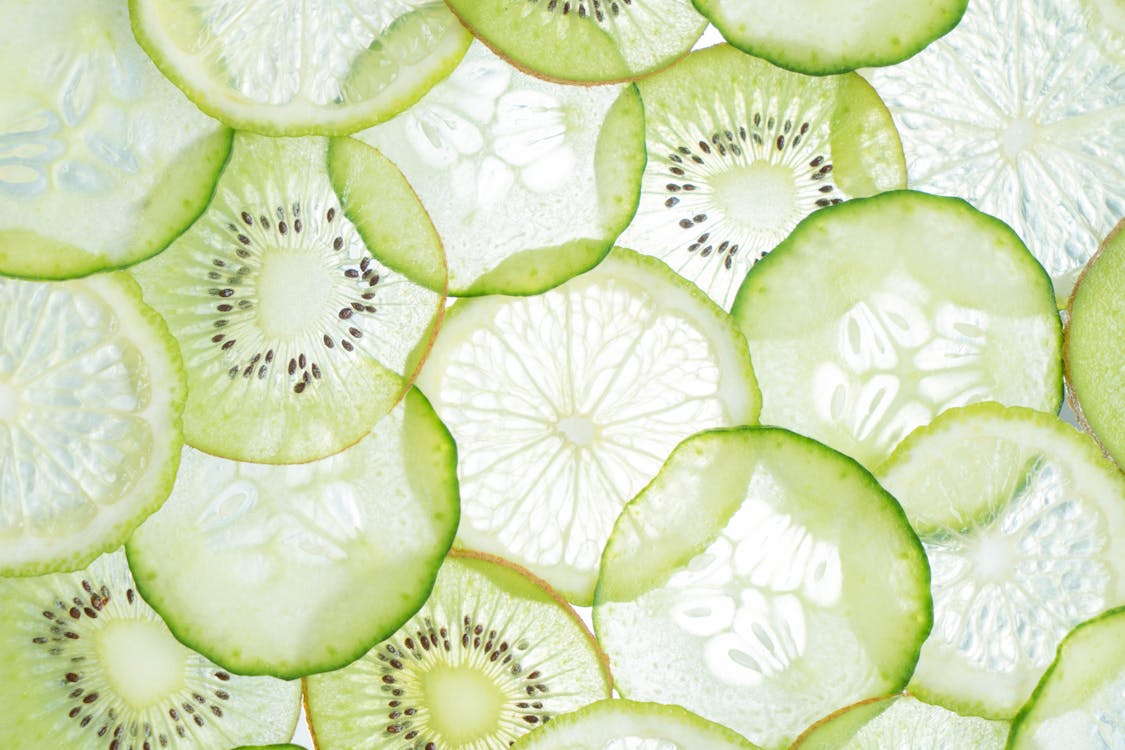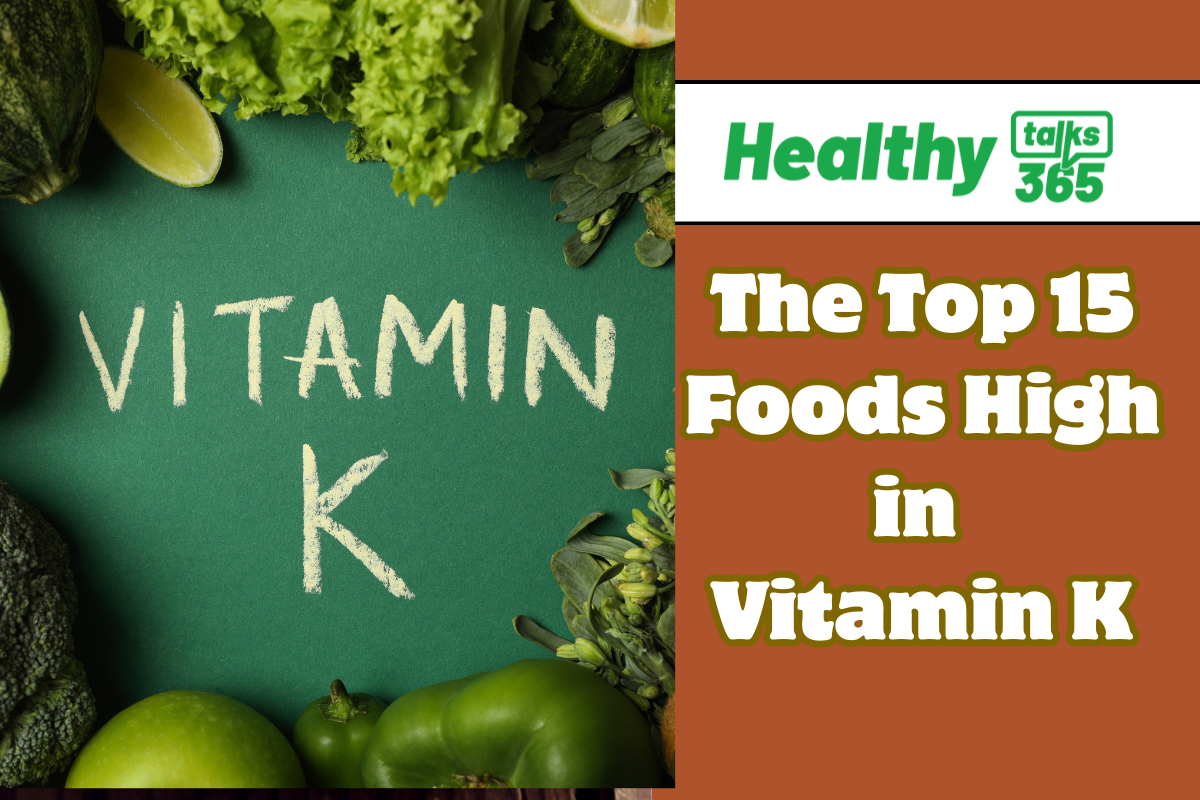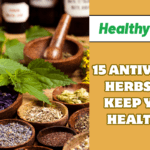The Top 15 Foods High in Vitamin K
1. Kale is high in Vitamin K
This leafy green vegetable is renowned for its impressive nutritional profile, and vitamin K is one of its standout components.
Vitamin K is essential for various bodily functions, particularly those related to blood clotting and bone health.
Kale’s high vitamin K content makes it a valuable addition to diets aimed at enhancing bone strength and density, as this vitamin plays a crucial role in calcium regulation and bone mineralization.
Just one cup of raw kale contains more than the daily recommended intake of vitamin K, which underscores its potency as a nutrient-dense food.
Read Also:
Focus While Studying: 10 Proven Methods
2. Spinach is rich in Vitamin K
This nutrient-dense leafy green vegetable is well-known for its high vitamin K content, which is essential for many bodily functions.
Vitamin K plays a critical role in blood clotting, which is necessary to prevent excessive bleeding when injuries occur.
Spinach is particularly valuable for its contribution to bone health, as vitamin K is crucial for maintaining bone density and strength.
By helping regulate calcium in the bones and preventing its loss, vitamin K supports skeletal integrity and reduces the risk of fractures.
3. Swiss chard is a good source of vitamin K
This vibrant and colorful leafy green vegetable is highly regarded for its impressive nutritional profile, with vitamin K being one of its standout components.
Vitamin K is essential for various bodily functions, particularly those related to blood clotting and bone health, making Swiss chard an excellent addition to a health-conscious diet.
The role of vitamin K in blood clotting is critical, as it helps the body to form clots and prevent excessive bleeding when injuries occur, which is vital for overall health and recovery.
Without sufficient vitamin K, the body’s clotting process can be compromised, leading to potential health risks and complications in wound healing.
4. Collard greens are high in vitamin K
Collard green’s consumption is crucial for many bodily functions, particularly those involving blood clotting and bone health, making collard greens an excellent addition to a nutritious diet.
The importance of vitamin K in blood clotting cannot be overstated, as it helps the body form clots to prevent excessive bleeding when injuries occur, which is essential for maintaining overall health.
Without adequate levels of vitamin K, the body’s ability to stop bleeding would be impaired, posing serious health risks and complicating recovery from injuries.
Collard greens are especially beneficial for bone health, as vitamin K plays a key role in maintaining bone density and strength by regulating calcium in the bones and reducing the risk of fractures.
Read Also:
11 Best Ways to Improve Your Digestion
5. Turnip greens contain good amount of vitamin K
Turnip greens contribute significantly to bone health, as vitamin K is essential for maintaining bone density and strength by regulating calcium in the bones and reducing the risk of fractures.
Incorporating turnip greens into your diet can help ensure that you receive an adequate amount of vitamin K, supporting skeletal integrity and overall well-being.
One serving of turnip greens provides a substantial portion of the daily recommended intake of vitamin K, highlighting their value as a nutrient-rich food.
The versatility of turnip greens in culinary applications allows you to enjoy their benefits in various dishes, such as salads, sautés, soups, and stews, making it easy to integrate them into your meals.
This versatility ensures that you can regularly include turnip greens in your diet, enhancing your nutritional intake effortlessly.
6. Mustard greens are rich in vitamin K
Mustard greens are packed with other vitamins, minerals, and antioxidants, making them a nutritional powerhouse that supports overall health.
For individuals looking to boost their vitamin K intake, mustard greens are a reliable and delicious option that can be easily integrated into a wide range of meals.
Mustard greens’ richness in vitamin K, combined with their array of other beneficial nutrients, makes them a top choice for promoting blood clotting, bone health, and overall nutritional well-being.
Whether you are seeking to enhance your diet with more leafy greens or specifically aiming to increase your vitamin K levels, mustard greens are an excellent option to consider.
By including mustard greens in your daily diet, you can significantly contribute to maintaining optimal levels of vitamin K, supporting essential physiological processes, and promoting overall health.
7. Brussels sprouts contain a good amount of vitamin K
Brussels sprouts contain a good amount of vitamin K.
This cruciferous vegetable is highly regarded for its dense nutritional profile, with vitamin K being one of its most significant components.
This is essential for various bodily functions, making Brussels sprouts an excellent addition to a balanced diet.
Without adequate levels of vitamin K, the body’s ability to stop bleeding would be significantly impaired, posing serious health risks and complications in recovery from injuries.

8. Broccoli is one of the best sources of vitamin K
Broccoli’s contribution to bone health is substantial, as vitamin K plays a vital role in maintaining bone density and strength by regulating calcium in the bones and reducing the risk of fractures.
Broccoli in your diet can help ensure that you receive an adequate amount of vitamin K, supporting skeletal integrity and overall well-being.
Broccoli provides a substantial portion of the daily recommended intake of vitamin K, highlighting its value as a nutrient-dense food.
Read Also:
Best Exercises And Yoga Poses For A Healthy Lifestyle
9. Cabbage is rich in vitamin K
Cabbage’s richness in vitamin K, combined with its diverse array of other beneficial nutrients, makes it a top choice for promoting blood clotting, bone health, and overall nutritional well-being.
With cabbage in your daily diet, you can significantly contribute to maintaining optimal levels of vitamin K, supporting essential physiological processes, and promoting overall health.
Cabbage not only provides a significant amount of vitamin K but also supports a balanced and healthy diet, making it a highly valuable food for maintaining overall wellness.
Its rich nutrient profile makes cabbage an excellent choice for anyone looking to improve their diet and enhance their health.
10. Asparagus is highly rich in vitamin K
This nutrient-packed vegetable is renowned for its impressive nutritional profile, with vitamin K being one of its most notable components.
Beyond its high vitamin K content, asparagus offers a wealth of other vitamins, minerals, and antioxidants, making it a nutritional powerhouse that supports overall health.
By including asparagus in your daily diet, you can significantly contribute to maintaining optimal levels of vitamin K, supporting essential physiological processes, and promoting overall health.
The inclusion of asparagus in various culinary dishes allows for a wide range of flavors and textures, making healthy eating both enjoyable and diverse.
11. Prunes contains high vitamin K
Prunes contain high vitamin K.
These dried fruits are known for their sweet and tangy flavor, and they also pack a punch when it comes to nutrition.
Prunes are rich in fiber, antioxidants, and other essential vitamins and minerals, making them a nutritious choice for supporting overall health.
For those looking to increase their vitamin K intake, prunes offer a convenient and delicious option that can be enjoyed in many ways.
12. Blueberries good amount of vitamin K
Blueberries contain a good amount of vitamin K. These small, sweet berries are not only delicious but also offer a range of health benefits.
Vitamin K, found in blueberries, plays a crucial role in blood clotting and bone health, making them a valuable addition to a balanced diet.
Blueberries’ good amount of vitamin K which allows our body to stay stronger and healthier.
Blueberries not only provide a significant amount of vitamin K but also offer numerous other health benefits, making them a nutritious and flavorful choice for any diet.
13. Grapes are rich in vitamin K
While grapes are often enjoyed fresh as a snack or added to fruit salads and desserts, they can also be incorporated into savory dishes, such as salads and sauces.
Grapes’ richness in vitamin K, along with their array of other beneficial nutrients, makes them a valuable addition to a nutritious diet.
By incorporating grapes into your meals and snacks, you can help ensure that you maintain optimal levels of vitamin K, supporting vital physiological processes and promoting overall health.
Their versatility in culinary applications allows for creative and enjoyable ways to include them in your meals, enhancing both taste and nutrition.
14. Figs are rich in vitamin K
For individuals seeking to boost their vitamin K intake, figs present a convenient and delicious option that can be enjoyed in numerous ways.
By integrating figs into your meals and snacks, you can help ensure optimal levels of vitamin K, supporting crucial physiological processes and enhancing overall health.
Figs not only deliver a substantial amount of vitamin K but also provide a host of other health benefits, rendering them a nutritious and delectable choice for any dietary regimen.
15. Kiwi is a good source of vitamin K
This tropical fruit is renowned for its vibrant green color and unique flavor profile, and it also packs a punch in terms of nutrition.
Vitamin K, found in kiwi, plays a crucial role in various bodily functions, including blood clotting and bone health, making it an excellent addition to a balanced diet.
Maintaining adequate levels of vitamin K is essential for overall health and well-being.
While kiwi is often enjoyed fresh as a snack or added to fruit salads and smoothies, it can also be incorporated into savory dishes, such as salsa or marinades for meats.
In addition to vitamin K, kiwi is rich in antioxidants, fiber, and other essential nutrients, contributing to its reputation as a superfood.
Including kiwi in your diet can help support a healthy immune system, improve digestion, and promote heart health.




